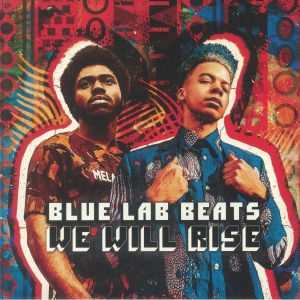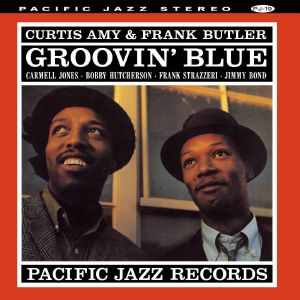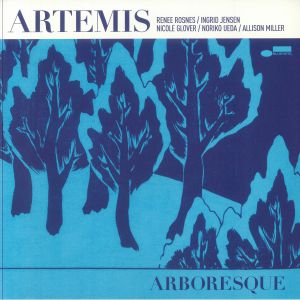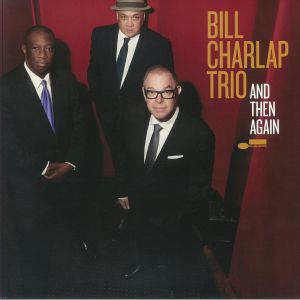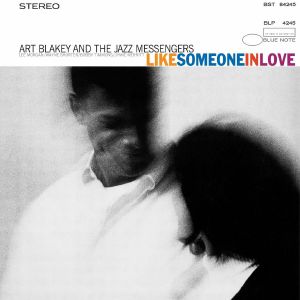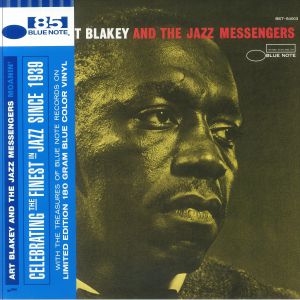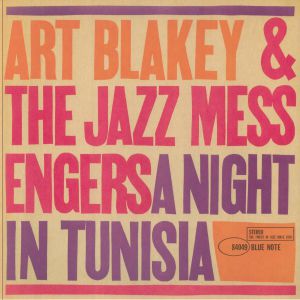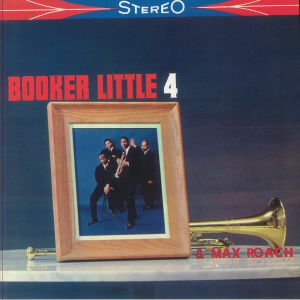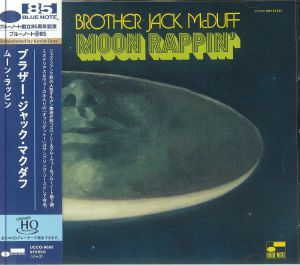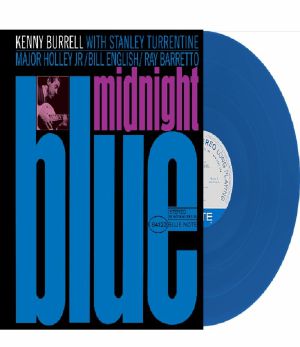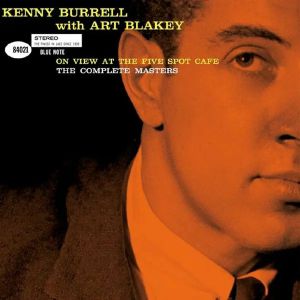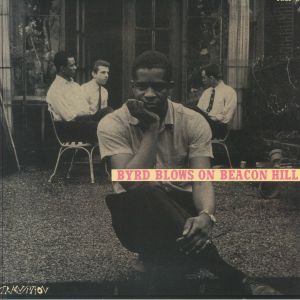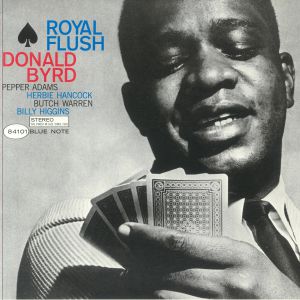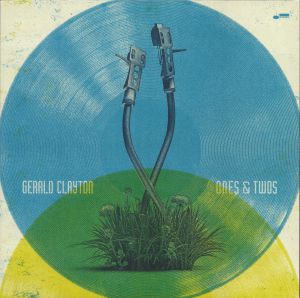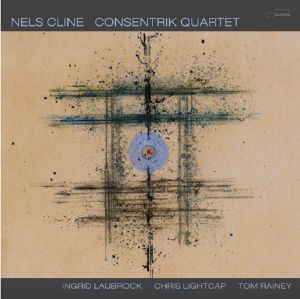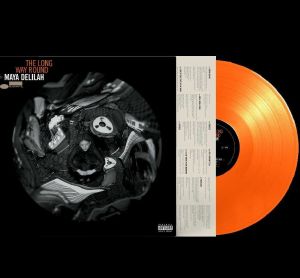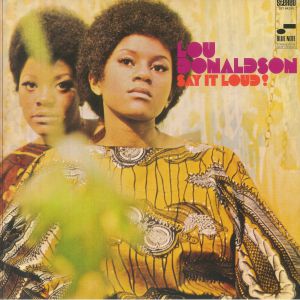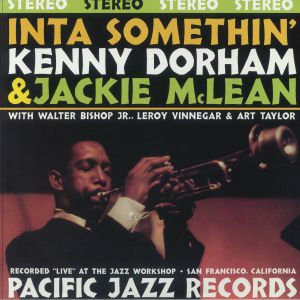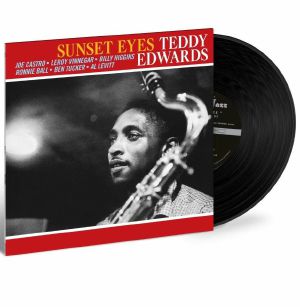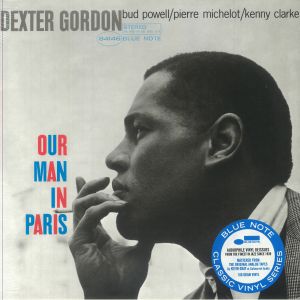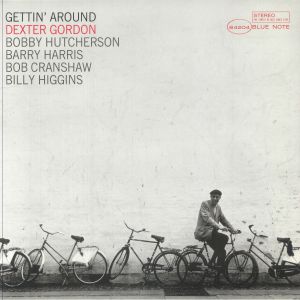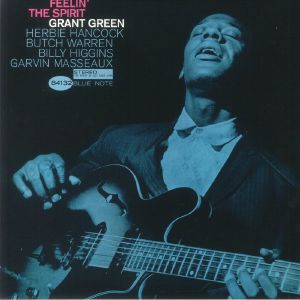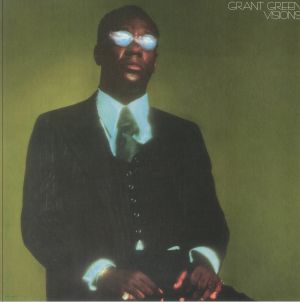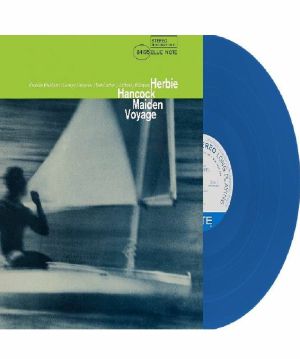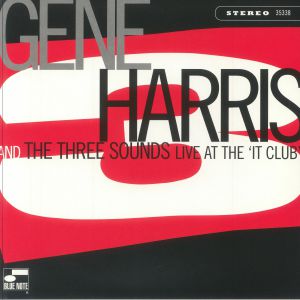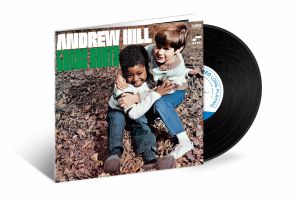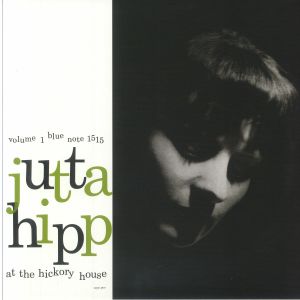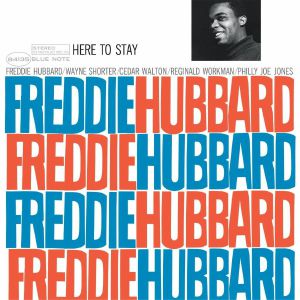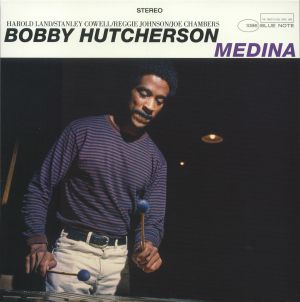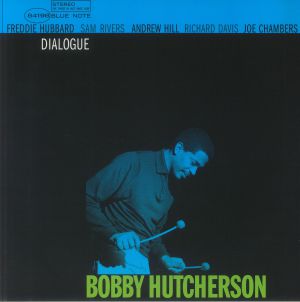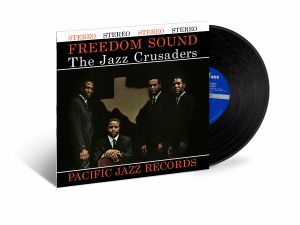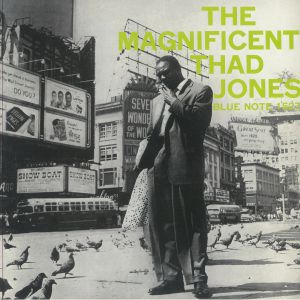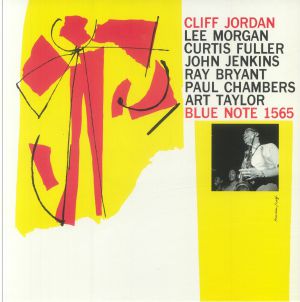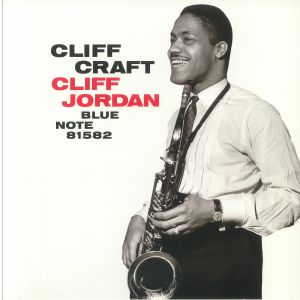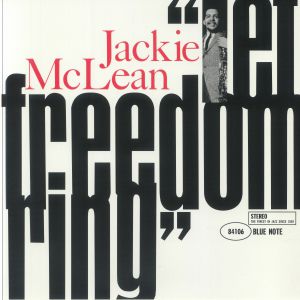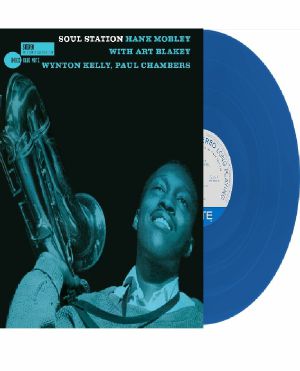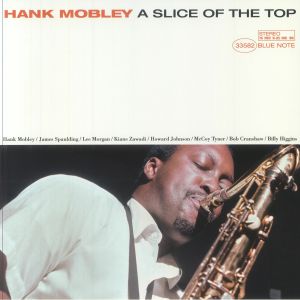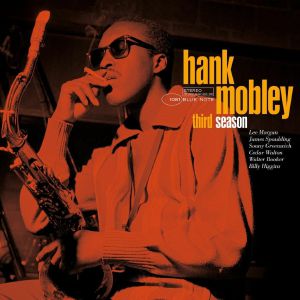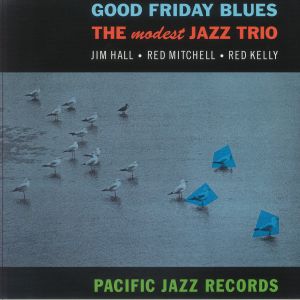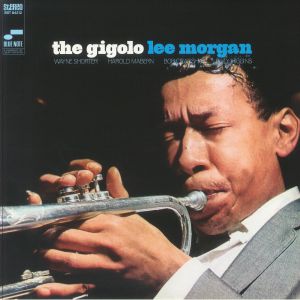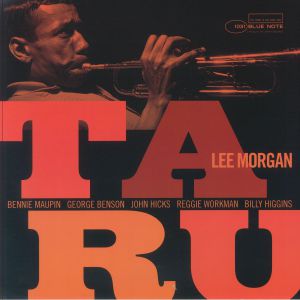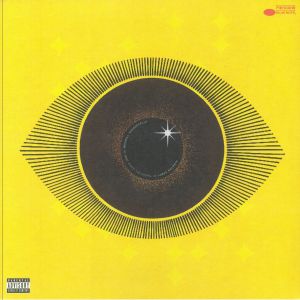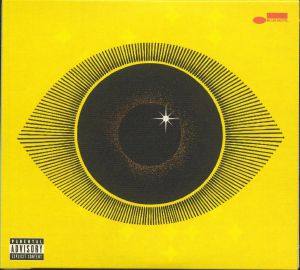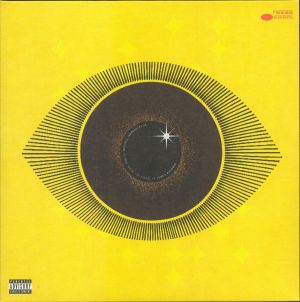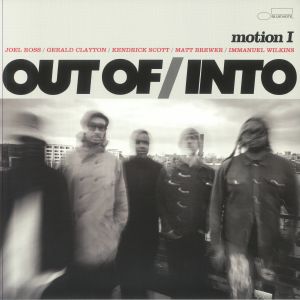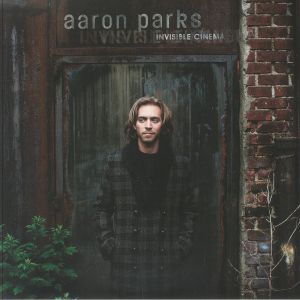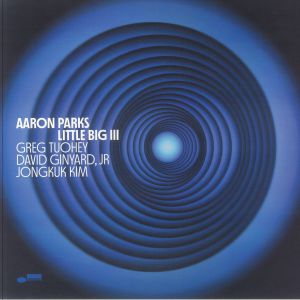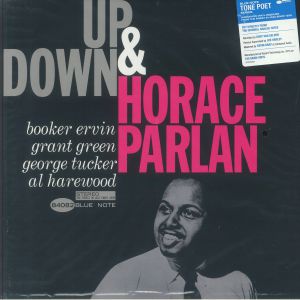Filter
Stock
Artist
Label
Featured
Release Title
Price
Back catalogue: All genres
Juno's full catalogue of All genres
Singles
Review: 2020’s acclaimed Blue Note Re:imagined project heard London duo Blue Lab Beats - producer NK-OK and multi-instrumentalist Mr DM - usher in 2021 with the EP We Will Rise and its dynamic lead single ‘Blow You Away (Delilah) feat Ghetto Boy'. Now neatly bagged up in a five-tracker EP, with collaborations with Braxton Cook, Kojey Radical, Alex Blake, and DTsoul, this one’s a heartfelt but still breezy project, laying down healing and hope in the face of racism. Reassurance and joy interlace a sound pinching motifs of boom-bap and jazz-funk, with influences from hip-hop pioneers and the African diaspora. A future-focused London bowls headlong into the future, chanting the motto 'We Will Rise’.
… Read more in stock $21.56
Albums
Groovin' Blue (Tone Poet Series) (180 gram audiophile vinyl LP + insert)
Cat: 554214 5. Rel: 06 Mar 25
Jazz
Review: Human novae of the 1950s jazz circuit in Hollywood, Curtis Amy and Frank Butler imploded the local scene at the turn of the swinging decade when they began to record for local label Pacific Jazz. Laid down in a single session at the PJ studio, Groovin' Blue is a timeless and idiosyncratic experiment in jazz, its specialty being tss-tss rhythms, unhindered lead instrumental melisma, sax counterpoint, and smackout drum fills and solos from Butler, which more than transcended the strictures of the swing form of the time. Also hearing vibraphonist Bobby Hutcherson, who was just 19 years old at the time of this recording, this excellent six-song set is perfect for those audiophiles keen on the interesting intersection of blues and jazz.
… Read more in stock $39.75
Review: Fresh off their second consecutive win as "Jazz Group of the Year" in the DownBeat Readers Poll, Artemis returns with their third Blue Note album. Featuring a quintet lineup helmed by pianist and musical director Renee Rosnes, this all-female supergroup unites some of the most pre-eminent voices in modern jazz. Trumpeter Ingrid Jensen, saxophonist Nicole Glover, bassist Noriko Ueda and drummer Allison Miller bring their individual brilliance to a vibrant set of original compositions and inspired arrangements. 'The Smile Of The Snake' slithers with a captivating energy, while 'Komorebi' shimmers with delicate beauty. 'Footprints', a Wayne Shorter classic, receives a fresh and invigorating interpretation, while Burt Bacharach's 'What The World Needs Now Is Love' is transformed into a poignant ballad. From the intricate interplay of Jensen's trumpet and Glover's saxophone to the driving rhythms of Ueda and Miller, this album showcases a remarkable synergy between five exceptional musicians at the top of their game.
… Read more in stock $30.80
Review: After nearly three decades and almost 20 albums, Bill Charlap remains a paragon of jazz piano, with his trio - bassist Peter Washington and drummer Kenny Washington - standing as one of today's premier jazz groups. Their latest Blue Note release, And Then Again, recorded live at the Village Vanguard, harnesses the trio's extraordinary synergy and intuitive communication. The trio's has an unparalleled cohesion with sharp decision-making, and dynamic improvisations. The album highlights a blend of songbook classics and compositions by jazz greats, including the vibrant lead track, 'And Then Again' by Kenny Barron. Each performance moves from a calculated vision to a more spontaneous and intuitive approach. Years of critical acclaim and regular performances at the Vanguard have solidified their status, with Charlap's early experiences at the famed club fueling his passion. A thrilling and heartfelt live recording.
… Read more in stock $32.20
Review: Recorded during the same intense August 1960 sessions that produced another iconic album, this release showcases the brilliance of a hard-bop quintet, combining fiery improvisation with introspective ballads. The album opens with a standard tune that became a regular feature in the group's live sets, setting the stage for a collection of original compositions. Lee Morgan's 'Johnny Blue' stands out with its infectious blues line, while Wayne Shorter's compositionsiparticularly 'Sleeping Dancer Sleep On'ireveal his growing mastery of melody and complex chord changes. The track is a highlight, with lush, gospel-funky piano and a slow, stunning waltz rhythm. Shorter's 'Noise in the Attic' is a powerful drum showcase, allowing for blistering solos from the horns but placing special emphasis on the piano work. 'Giants', another Shorter composition, closes the album with a hard-bop anthem that keeps the energy high and steady throughout. While Blakey typically dominates with his high-energy drumming, here he takes a more restrained role, allowing the melodies to breathe. The synergy of the quintet is palpable, with Bobby Timmons' percussive piano providing a dynamic counterpoint to the horn lines.
… Read more in stock $29.40
Moanin' (limited 180 gram blue vinyl LP with obi-strip (indie exclusive))
Cat: 585922 8. Rel: 08 Aug 24
Jazz
Review: Art Blakey & The Jazz Messengers' Moanin' is a quintessential hard bop album that effortlessly stands out with its classic, distinctive sound. Released in 1958, this seminal record features a lineup of jazz luminaries, including pianist Bobby Timmons, saxophonist Benny Golson, trumpeter Lee Morgan, and bassist Jymie Merritt. Despite its adherence to traditional hard bop elements, the album shines with an exceptional blend of precision, enthusiasm, and depth. The title track, 'Moanin',' composed by Timmons, sets the tone with its infectious groove, while Golson's contributionsi'Along Came Betty,' 'Blues March,' and 'Are You Real?'iadd a range of emotions and rhythms, from lyrical to powerful. The standout 'The Drum Thunder Suite' shows Blakey's unparalleled drumming strength, combining dynamic rhythms and Latin influences. The album's meticulous craftsmanship ensures that every track maintains the listener's attention, offering a mix of accessible melodies and intricate musicianship. Blakey's leadership and the band's chemistry result in an album that is not only a highlight of hard bop but also a compelling entry point for jazz enthusiasts. Moanin' remains a timeless classic, celebrated for its masterful execution and enduring impact on the jazz genre.
… Read morePlayed by: Juno Recommends Jazz
in stock $41.71
A Night In Tunisia
Sincerely Diana
So Tired
Yama
Kozo's Waltz
Review: One of the finest line-ups of Art Blakey & The Jazz Messengers came together when saxophonist Wayne Shorter joined trumpeter Lee Morgan, pianist Bobby Timmons and bassist Jymie Merritt, as featured on this now newly reissued 1960 album A Night In Tunisia. The album kicks off with a blazing rendition of Dizzy Gillespie's iconic piece - which lends its name to the LP - while the rest of the set highlights original compositions from the new band members. This Blue Note Classic Vinyl Edition is a stereo, all-analogue release mastered by Kevin Gray from the original master tapes, so sounds superb.
… Read morePlayed by: Juno Recommends Jazz
in stock $28.84
Booker Little 4 & Max Roach (Tone Poet Series) (180 gram audiophile vinyl LP)
Cat: 488194 8. Rel: 03 Oct 24
Jazz
Review: The reissue of Booker Little 4 & Max Roach as part of the Tone Poet Vinyl Series is an exciting announcement for jazz fans. Booker Little, a brilliant trumpeter whose life was tragically cut short at 23, left an indelible mark on the jazz world. This 1958 album, recorded when Little was just 20, showcases his extraordinary talent both as a musician and composer. The LP features the dynamic interplay between Little and Max Roach, one of jazz's most influential drummers, along with George Coleman on tenor sax, Tommy Flanagan on piano and Art Davis on bass. It opens with a spirited rendition of Miles Davis' 'Milestones', setting the tone for the session, before the standards 'Sweet and Lovely' and 'Moonlight Becomes You' are given fresh interpretations. But the heart of the album lies in Little's original compositions: 'Rounder's Mood,' 'Dungeon Waltz,' and 'Jewel's Tempo.' These tracks highlight his inventive melodic sense and technical strength. The Tone Poet Series ensures an audiophile-quality experience, with meticulous mastering by Kevin Gray and a deluxe presentation that lives up to the highest standards.
… Read morePlayed by: Juno Recommends Jazz
in stock $39.75
Review: Brother Jack McDuff's Moon Rappin is a bold exploration of funky and spacey soundscapes, marking a departure from his usual soul-jazz style. While the album may not adhere to traditional jazz norms, its fusion of funk rhythms with jazz improvisation showcases McDuff's versatility and willingness to experiment. Tracks like 'Flat Backin' and the title track blend jazz flutters over a funk foundation, creating a dynamic and engaging listening experience. With its heavy wah guitar and top-notch drumming, the album successfully bridges the gap between jazz and funk, offering a glimpse into the progressive musical trajectories of the era. In hindsight, Moon Rappin emerges as an unintentional precursor to the funk and jam music that would follow, with its spacey soundscapes hinting at the psychedelic funk to come. McDuff's adventurous spirit and willingness to push boundaries make Moon Rappin a noteworthy and influential record that deserves recognition for its role in shaping the musical landscape of its time.
… Read more in stock $19.59
Midnight Blue (Blue Vinyl Series) (limited 180 gram blue vinyl LP with obi-strip (indie exclusive))
Cat: 651174 3. Rel: 10 Oct 24
Jazz
Review: Kenny Burrell's Midnight Blue, recorded in 1963, stands as one of the finest examples of jazz guitar blended with deep blues. Backed by an impressive lineup including Stanley Turrentine on tenor sax, Major Holley Jr. on bass, Bill English on drums, and Ray Barretto on congas, the album creates a warm, late-night mood. Burrell's originals like 'Chitlins con Carne', 'Midnight Blue' and the beautiful solo guitar piece 'Soul Lament' bring a rich, soulful character to the session. Known for his smooth, understated approach, Burrell fills the record with subtle elegance. Turrentine's big, soulful sax and Barretto's rhythmic congas add layers of texture, making this a truly great listen. The relaxed, intimate atmosphere captured by Rudy Van Gelder's exceptional recording skills allows each instrument to shine, with Burrell's guitar work at the center, delivering warmth and swing with a vintage touch. This edition, all-analog and pressed on 180g vinyl, brings the full depth of the original sound to life.
… Read more in stock $41.16
Review: By the time Kenny Burrell took the stage at the Five Spot Cafe in August 1959, he had already 90-degree head-turned his best jazz fellow travellers with a glissando of Blue Note LPs. But this gig, his first live date as a leader, brought a new kind of magic. Contracting Art Blakey, Tina Brooks, Roland Hanna, Bobby Timmons, and Ben Tucker on band duties, Burrell confidently executed a suite of hard bop soaked in sweat, swing, and soul. This 3xLP brings that steamy summer evening back to life in full analogue detail; housed in a tip-on trifold jacket with an accompanying booklet of rare Francis Wolff photos, an essay by Syd Schwartz, and new reflections from Burrell himself, it's a vivid snapshot of a moment when everything clicked.
… Read morePlayed by: Juno Recommends Jazz
in stock $15.40
Byrd Blows On Beacon Hill (Tone Poet Series) (180 gram audiophile vinyl LP + insert)
Cat: TRLP 17. Rel: 04 Jul 24
Jazz
Review: Recorded in 1956 for producer Tom Wilson's Transition Records, Byrd Blows on Beacon Hill presents trumpeter Donald Byrd in a relaxed quartet setting. Joined by Doug Watkins on bass, Boston-area musicians Ray Santisi on piano and Jim Zitano on drums, Byrd delivers a standards-heavy set recorded on a rainy spring afternoon in the Beacon Hill home of engineer Steve Fassett. This casual atmosphere contributes to the album's easygoing charm and intimate feel. Highlights include Byrd's lyrical rendition of Joe Sullivan's 'Little Rock Getaway' and beautiful interpretations of 'Polka Dots and Moonbeams,' 'If I Love Again,' and 'Stella by Starlight.' The trumpeter steps back on tracks like 'People Will Say We're in Love' and 'What's New,' allowing the trio to really shine.
… Read morePlayed by: Juno Recommends Jazz
in stock $42.84
Royal Flush (Classic Vinyl Series) (reissue) (180 gram audiophile vinyl LP)
Cat: 650076 5. Rel: 17 Oct 24
Jazz
Review: Donald Byrd's Royal Flush, released in 1961 on Blue Note, exemplifies his mastery of hard bop, featuring a stellar lineup that includes a young Herbie Hancock on piano, Pepper Adams on baritone sax, Butch Warren on bass, and Billy Higgins on drums. This album marks Hancock's recording debut, showcasing his burgeoning talent as he steps into the shoes of Duke Pearson. The combination of Byrd's trumpet and Adams' baritone sax creates a unique, textured harmony that is both bold and refined. Tracks like 'Hush' and 'Shangri-La' highlight the band's cohesive interplay, with solos that are both distinct and beautifully integrated into the compositions. 'Requiem,' a standout piece penned by Hancock, offers a mid-tempo, gospel-tinged piano blues that allows Hancock to explore melodic space, supported by Byrd and Adams' plaintive lines and Warren's resonant bowed bass solo. What sets Royal Flush apart is Byrd's understated leadership, allowing each musician to shine while maintaining a unified sound. The result is an album rich in melody, brimming with the synergy of seasoned players and a young, innovative pianist on the rise.
… Read morePlayed by: Juno Recommends Jazz
in stock $30.52
Review: Dutch-born American jazz pianist and composer Gerald Clayton is back with a sixth album, his second on Blue Note. Ones & Twos is another exploration of jazz, hip-hop, neo-soul and raw improvisation that is all rooted in a deep conceptual framework. Featuring standout collaborators like Joel Ross, Elena Pinderhughes, Kendrick Scott and Kassa Overall, the album moves effortlessly from groove to abstraction and is inspired by turntablism, which is why Clayton created two sets of tracks that can play individually or simultaneously, blurring the line between harmony and dissonance. As rich as the sonics are, there is also real philosophical intent here, making it both a visceral and cerebral listen with layered commentary on collaboration, coexistence and creativity.
… Read morePlayed by: Juno Recommends Jazz
! low stock $30.22
Review: Chicago rock band Wilco's guitarist - a highly prolific jazz maestro in his own right - brings us his latest full length album. A hypnotic groove anchors the lead single, propelling a hard-driving yet fluid interplay between guitar and saxophone. The composition brims with urgency, each phrase unfolding with elegant harmonic tension and a deep jazz sensibility. The quartet's chemistry is undeniable, balancing structured intensity with moments of free-flowing improvisation. Echoes of classic Blue Note recordings by Andrew Hill and Eric Dolphy surface in the phrasing, while the interplay recalls the front-line dynamism of Joe Lovano and John Scofield's collaborations. Yet, the sound remains singular, shaped by a deep appreciation for Brooklyn's improvised music scene. Across the album, the group explores a vast emotional and textural rangeiat times bracing and kinetic, elsewhere delicate and atmospheric. The rhythm section locks into compelling grooves, allowing melodies to breathe and evolve organically. The guitarist's mastery is evident, seamlessly shifting from shimmering chord voicings to fiery, exploratory runs. This is a love letter to both jazz tradition and the limitless potential of improvisation, where every note serves the collective momentum.
… Read more in stock $40.03
Review: A multifaceted personality, 24-year-old breakout folk star Maya Delilah shares The Long Way Round on Decca Records, fresh off the back of a Spotify "One To Watch" award. "I get so influenced by different genres, people, places, and experiences that it's always felt hard for me to fit my music into a consistent sound or mood," the singer said in a statement. Forerun by the likes 'Squeeze' and 'Necklace', Delilah's vocals are breathy and her backing instrumentals smooth, tinged with the torrid strokes of Ayers-esque sunshine funk. Recorded between LA and London, the record flags up themes from cyclical relationships to predestination, with Delilah feeling that the record expresses a future nostalgia for someone she's never met before.
… Read more in stock $28.84
Review: Lou Donaldson's Say It Loud! is a classic of the late 60s soul-jazz movement, combining infectious grooves with a lineup of skilled musicians. Released in 1969 on Blue Note, this album highlights California-based Donaldson's expertise on the alto saxophone, blending hard-swinging bebop roots with a funkier, dance-driven approach. The title track, inspired by James Brown's anthem, is a cool, laid-back rendition that shows his nuanced playing alongside the solid rhythms of trumpeter Blue Mitchell, guitarist Jimmy Ponder, organist Charles Earland, and drummer Leo Morris. The album shines with its extended tracks like 'Snake Bone' and 'Brother Soul', where the soloists stretch out, creating moments of tension and release. Ponder's blues-infused guitar solos and Earland's dramatic organ builds are standouts. While the bossa nova rendition of 'Summertime' and the swinging 'Caravan' bring a more traditional jazz feel, the album is most vibrant when it grooves hard. Despite being somewhat overshadowed by Donaldson's earlier work, Say It Loud! remains a highly enjoyable and essential part of his legacy. It may not carry the same weight as Midnight Creeper, but its infectious rhythms and tasteful solos ensure its place as a classic in soul-jazz, deserving of a greater appreciation which this reissue celebrates.
… Read morePlayed by: Craig Charles Funk And Soul
in stock $30.80
Review: Kenny Dorham and Jackie McLean's Inta Somethin' is a vibrant snapshot of their performance at San Francisco's Jazz Workshop in late 1961. Jackie Mac's prowess shines brightly as he delivers a compelling rendition of 'Una Mas' a year prior to its Blue Note release. Backed by Leroy Vinnegar, Walter Bishop and Art Taylor, the ensemble crafts a dynamic and exhilarating atmosphere as McLean's virtuosity is on full display, captivating listeners with his electrifying playing style. Inta Somethin' is proof of the skills of these jazz giants and is a great window into their live repertoire and sense of musical innovation.
… Read morePlayed by: Juno Recommends Jazz
in stock $40.88
Review: An album that defined the "cool" in West Coast Jazz when it emerged in 1960, it's a robust, swinging session led by the veteran Los Angeles-based tenor saxophonist. Edwards' smooth tone in the middle and lower registers, combined with a brassier edge in the upper range, showS his melodic inventiveness and dynamic fluidity. The primary rhythm section features Leroy Vinnegar on bass and Billy Higgins on drums, with either Amos Trice or, more often, Joe Castro on piano. Higgins, fresh off sessions with Ornette Coleman, locks into a straight-ahead groove, with the entire rhythm section swinging relentlessly. Pianists Trice and Castro bring a bebop-plus-barroom feel reminiscent of Sonny Clark, adding grit and charm to the quartet's sound. The program is largely blues and bebop-flavored originals, with several based on the chord changes of 'I've Got Rhythm'. The title track introduces a Latin flair, while Vinnegar's 'Vintage '57' offers variety.A pivotal moment in West Coast jazz when Edwards, once obscure, reemerged with vigour.
… Read more in stock $40.30
Our Man In Paris (Classic Vinyl Series) (180 gram audiophile vinyl LP)
Cat: 651496 7. Rel: 20 Feb 25
Jazz
Review: Super cool jazz cat Dexter Gordon's 1963 album Our Man in Paris marked his first release from Europe and is often regarded as the final bebop album. The saxophonist gathered a quartet featuring bebop legends Bud Powell on piano and Kenny Clarke on drums and they played alongside French bassist Pierre Michelot to record this timeless work at CBS Studios in Paris. The album is defined by Gordon's commanding saxophone with the intricate rhythms of bebop that take you right back to a precise moment of musical history which marked a significant transition in jazz. It remained a defining work in Gordon's career.
… Read morePlayed by: Juno Recommends Jazz
! low stock $31.35
Gettin' Around (Classic Vinyl Series) (180 gram audiophile vinyl LP)
Cat: 651036 8. Rel: 14 Nov 24
Jazz
Review: Dexter Gordon's 1965 album Gettin' Around captures the essence of his refined, effortless saxophone playing, coming at a time when he was back in the States after a long stint in Europe. The vibe here is smooth and unhurried, with Gordon's tenor sax at the centre of it all, surrounded by a standout crew: vibraphonist Bobby Hutcherson, pianist Barry Harris, bassist Bob Cranshaw, and drummer Billy Higgins. This unique instrumentation really shines, especially with the interplay between Gordon and Hutcherson on tracks like 'Manha De Carnival' and 'Shiny Stockings.' The whole session feels relaxed yet precise, with Gordon letting his sax sing while the band provides subtle yet nuanced backing. Highlights include the gentle swing of 'Everybody's Somebody's Fool' and the more upbeat 'Le Coiffeur,' both showcasing the group's tight but easy-going chemistry. Reissued as part of the Blue Note Classic Vinyl Series, this edition stays true to its analogue roots, mastered by Kevin Gray from the original tapes and pressed on heavyweight 180g vinyl. For fans of Gordon or classic Blue Note, it's a must-have.
… Read morePlayed by: Juno Recommends Jazz
in stock $30.80
Feelin' The Spirit (Tone Poet Series) (remastered) (B-STOCK) (limited gatefold 180 gram audiophile vinyl LP)
Cat: B 003348801 (B-STOCK). Rel: 01 Jan 90
Jazz
B-STOCK: Sleeve split at the top but otherwise in excellent condition
Review: ***B-STOCK: Sleeve split at the top but otherwise in excellent condition***
Blue Note's Tone Poets series is all about celebrating some of the greatest jazz guitarists, reissuing their seminal albums as a nod to virtuoso talent. Grant Green's 1963 album Feelin' The Spirit consisted of jazz arrangements of traditional African American spirituals such as 'Nobody Knows The Trouble I've Seen' and 'Sometimes I Feel Like A Motherless Child'. Given the historical weight of the music, it's no surprise to hear Green soaring high as he expresses the songs through his guitar, but as if that wasn't enough he's backed up by Herbie Hancock on piano, Butch Warren on bass and Billy Higgins on drums.
… Read moreBlue Note's Tone Poets series is all about celebrating some of the greatest jazz guitarists, reissuing their seminal albums as a nod to virtuoso talent. Grant Green's 1963 album Feelin' The Spirit consisted of jazz arrangements of traditional African American spirituals such as 'Nobody Knows The Trouble I've Seen' and 'Sometimes I Feel Like A Motherless Child'. Given the historical weight of the music, it's no surprise to hear Green soaring high as he expresses the songs through his guitar, but as if that wasn't enough he's backed up by Herbie Hancock on piano, Butch Warren on bass and Billy Higgins on drums.
in stock $34.27
Review: Grant Green's Visions, released in 1971, dives into r&b and jazz-funk with an all-star lineup including Billy Wooten, Chuck Rainey, and Idris Muhammad. Green's signature tone and melodic style transform tracks from The Jackson 5, Chicago, The Carpenters, Mozart, and Quincy Jones' 'Maybe Tomorrow,' later sampled by Kendrick Lamar. This Blue Note Classic Vinyl Edition captures the original stereo mix, mastered by Kevin Gray from analog tapes, pressed on 180g vinyl at Optimalia soulful essential for collectors and fans of jazz-funk's golden era.
… Read more in stock $30.80
Review: Herbie Hancock's Maiden Voyage, recorded in 1965, remains a cornerstone of jazz history, capturing the the era's musical evolution. The ensemble, featuring notable players like Freddie Hubbard on trumpet and George Coleman on tenor sax, creates a rich blend of sound that resonates with listeners. Hancock's piano feels more vibrant, with increased dynamic range, while Hubbard and Coleman's horns possess a lifelike clarity with this new pressing. The bass from Ron Carter has a rich pluck and Tony Williams' drumming resonates beautifully as the celebrated pianist navigates a sonic ocean with his stellar MDQ crew, crafting a series of tone poems that evoke the essence of water. Hancock's compositions explore the delicate balance of movement and stillness, with Coleman providing a reassuring anchor amid the chaos. Freddie Hubbard's more disruptive approach contrasts beautifully, adding depth to the texture. The rhythm section is perpetually in motion, embodying the album's theme of fluidity. Tracks like 'Survival of the Fittest' show Hancock's deft architecture, oscillating between chaos and calm, making for a timeless exploration of sound and emotion, a masterpiece that resonates through the ages.
… Read more in stock $32.20
Review: The Three Sounds, one of Blue Note's most productive acts, evolved significantly by 1970. Under the leadership of pianist Gene Harris, the trio welcomed bassist Henry Franklin and drummer Carl Burnett into its ranks, infusing their blues and gospel foundations with a funkier, more vibrant rhythm. This shift is brilliantly captured in Live at the 'It Club', a rousing live recording that highlights their transformation. The record demonstrates how the trio, especially through Burnett's drumming and Franklin's basslines, pushed their sound into funkier territories while maintaining their soulful hard-bop roots. The rhythm section's infectious groove drives the music, giving it a loose, swinging feel where the groove is paramount. Tracks like 'Funky Pullett' and 'Love for Sale' showcase this new dynamic, where the interplay between the trio adds layers of grit and soul to their performances. Live at the 'It Club' remains a thoroughly enjoyable listen with the trio's unique blend of soul-jazz with a fresh, funky twist proudly presented.
… Read morePlayed by: Juno Recommends Jazz
! low stock $30.52
Grass Roots (reissue) (Tone Poet Series) (gatefold 180 gram vinyl LP)
Cat: 551876 9. Rel: 17 Jan 25
Jazz
Review: Andrew Hill's 1968 release merges intricate rhythms with dense, harmonically rich compositions that push the boundaries of jazz. The ensemble, featuring Lee Morgan and Booker Ervin, dives into challenging material that unfolds with every listen. The intricate brass work on tracks like 'Grass Roots' contrasts with the fluidity of Hill's piano, while the rhythm section locks into an effortlessly tight groove. Hill's compositions are complex yet absorbing, blending intellectual depth with emotional resonance, creating a unique sonic landscape that rewards careful listening.
… Read morePlayed by: Kaoru Inoue
in stock $42.84
At The Hickory House Vol 1 (remastered) (180 gram audiophile vinyl LP)
Cat: 588078 9. Rel: 19 Sep 24
Jazz
Take Me In Your Arms
Dear Old Stockholm
Billie's Bounce
I'll Remember April
Lady Bird
Mad About The Boy
Ain't Misbehavin'
These Foolish Things
Jeepers Creepers
The Moon Was Yellow
Review: Jutta Hipp's At The Hickory House Vol. 1 is a window into a world where jazz piano can swing without fanfare and charm without overstatement. Recorded live in 1956, it captures a moment in time where Hipp, a little-known German transplant to New York, performed with bassist Peter Ind and drummer Ed Thigpen in a tight, energetic trio format. Hipp's lightly-swinging style moves effortlessly through bebop themes and standards, showing a deftness that feels unforced and natural, with just the right amount of flair. This Blue Note Classic Vinyl Edition is about the purity of soundimono, all-analogue, and mastered from the original tapes by Kevin Gray. The 180g pressing at Optimal guarantees that every note rings out with clarity, allowing listeners to experience Hipp's playing as it was meant to be heard. It's as close to stepping into that intimate club setting as you'll get without a time machine. There's a reason this release still resonates: the understated brilliance of a pianist who never quite got the limelight she deserved, but certainly made a lasting impression on those who tuned in.
… Read morePlayed by: Juno Recommends Jazz
in stock $30.52
Review: Recorded in 1962, this album captures Hubbard at the peak of his powers, his fiery trumpet soaring alongside a stellar lineup that includes Wayne Shorter, Cedar Walton, Reggie Workman and Philly Joe Jones. From the explosive opener, 'Philly Mignon', to the tender beauty of 'Body and Soul', the album showcases Hubbard's versatility and masterful command of the trumpet. This all analogue reissue, mastered by Kevin Gray from the original master tapes, really captures the energy and intimacy of this classic session.
… Read more in stock $29.96
Review: Bobby Hutcherson's innovative 1969 session Medina features a stellar lineup with Harold Land on tenor saxophone and flute, Stanley Cowell on piano, Reggie Johnson on bass, and Joe Chambers on drums all joining the legendary vibraphonist. The album showcases original compositions by Hutcherson, Cowell and Chambers and was recorded on August 11, 1969 at the Van Gelder Studio, Englewood Cliffs, New Jersey. This special reissue comes as part of the Tone Poet series produced by Joe Harley and mastered by Kevin Gray from the original analog master tapes.
… Read more in stock $40.88
Dialogue (Tone Poet Series) (gatefold 180 gram audiophile vinyl LP)
Cat: 550597 4. Rel: 31 Oct 24
Jazz
Review: Vibraphonist Bobby Hutcherson's 1965 debut, Dialogue, showcases his adventurous spirit. Already a versatile sideman on albums like Idle Moments and Out To Lunch, Hutcherson steps into the spotlight with a sextet featuring jazz luminaries Freddie Hubbard, Sam Rivers, Andrew Hill, Richard Davis, and Joe Chambers. Dialogue captures Hutcherson's more adventurous leanings, pushing the boundaries of his instrument and the genre. This Tone Poet Vinyl Edition, meticulously mastered by Kevin Gray from the original analogue tapes, offers a pristine listening experience. Pressed on 180g vinyl at RTI and packaged in a deluxe gatefold tip-on jacket, this reissue is a must-have for any serious jazz aficionado. It's a chance to hear a master musician at his most innovative and expressive.
… Read morePlayed by: Juno Recommends Funk, Juno Recommends Jazz
in stock $39.19
Review: The Jazz Crusaders' Freedom Sound blends hard bop and soul-jazz in a way that feels both fresh and timeless. The band delivers a tight, energetic performance, with each member adding their distinct touch to the album's punchy grooves. The horns are sharp and emotive, while the rhythm section locks in with precision, creating a perfect backdrop for the solos. Tracks like 'The Thrust' showcase their ability to seamlessly merge complexity with accessibility, making this a standout album that defines their early sound. It's a work that thrives on its energy and bold experimentation.
… Read more in stock $39.75
Review: Thad Jones' The Magnificent Thad Jones is a stunning album that beautifully showcases the beauty of hard bop. Released in 1956, it reflects the era's evolving jazz landscape, influenced by modern jazz pioneers like Horace Silver and Miles Davis. The album's tracks, including original compositions like 'Billy-Boo' and 'Thedia,' exude a relaxed yet lively vibe, typical of hard bop. Jones' trumpet work shines throughout, displaying a remarkable blend of relaxation and intensity in his solos. The ensemble's chemistry, especially between Detroit-raised musicians like pianist Barry Harris and Jones, is palpable, supported by the solid foundation laid by Percy Heath and Max Roach. Rudy Van Gelder's recording in Hackensack, New Jersey, harnasses the warmth and depth of Jones' trumpet sound, adding to the album's allure. The Magnificent Thad Jones is a timeless gem that continues to enchant jazz enthusiasts with its impeccable execution and rich musicality.
… Read morePlayed by: Juno Recommends Jazz
in stock $31.35
Cliff Jordan (Tone Poet Series) (gatefold 180 gram audiophile vinyl LP)
Cat: 488194 7. Rel: 31 Oct 24
Jazz
Review: Underappreciated tenorman Clifford Jordan made a notable entry from Chicago with three exceptional Blue Note sessions in 1957, including the self-titled album reissued here which features a stellar septet with Lee Morgan on trumpet, Curtis Fuller on trombone, John Jenkins on alto, Ray Bryant on piano, Paul Chambers on bass, and Art Taylor on drums. This mono Tone Poet Vinyl Edition, produced by Joe Harley, is mastered by Kevin Gray from the original analogue master tapes so sounds superb and is a great way to dive into Jordan's significant contribution to jazz.
… Read morePlayed by: Juno Recommends Funk, Juno Recommends Jazz
in stock $42.84
Review: Cliff Craft is a standout gem in Blue Note's 1500 series and one of the rarest treasures. This superb album features Clifford Jordan on tenor sax, alongside Art Farmer (trumpet), Sonny Clark (piano), George Tucker (bass), and Louis Hayes (drums). It's a smooth, soulful journey that captivates from the first note. The album opens with Jordan's composition 'Laconia,' setting the tone with a relaxing, immersive sound. Jordan's craftsmanship shines throughout, especially on 'Soul-Lo Blues,' a bluesy, enjoyable tune that highlights his exceptional talent. The title track, Cliff Craft, is a fast-tempo, hard-bop piece that showcases Jordan's rich tenor sound and the superb rhythm section. Side-2 kicks off with 'Confirmation,' a medium-tempo Bird tune that features laid-back solos from Jordan and Farmer. Clark's smooth, flowing solo adds to the track's charm. 'Sophisticated Lady,' a beautiful ballad by Duke Ellington, stands out as a favorite slow tune. The album concludes with the driving energy of Parker and Gillespie's 'Anthropology,' leaving you wanting more. Cliff Craft is one of the finest Blue Note records ever made.
… Read morePlayed by: Juno Recommends Jazz
in stock $31.35
Speak To Me (B-STOCK) (gatefold white vinyl 2xLP (indie exclusive))
Cat: 588307 5 (B-STOCK). Rel: 01 Jan 90
Jazz
B-STOCK: Sleeve damaged but otherwise in excellent condition
Review: ***B-STOCK: Sleeve damaged but otherwise in excellent condition***
Guitar virtuoso Julian Lage's Speak To Me is a dynamic Blue Note album produced by Joe Henry. Arriving with 13 original tracks, Lage's compositions navigate a rich tapestry of American music genres, from gospel hymns to California singer-songwriter vibes and skronky jazz. The album's lead single '76' showcases a hard-driving blues essence, while 'As It Were' offers an atmospheric acoustic ballad. With contributions from Kris Davis, Patrick Warren, Levon Henry, and his trusted trio with bassist Jorge Roeder and drummer Dave King, Lage presents a multifaceted musical journey that captivates and enthrals in equal measure here.
… Read moreGuitar virtuoso Julian Lage's Speak To Me is a dynamic Blue Note album produced by Joe Henry. Arriving with 13 original tracks, Lage's compositions navigate a rich tapestry of American music genres, from gospel hymns to California singer-songwriter vibes and skronky jazz. The album's lead single '76' showcases a hard-driving blues essence, while 'As It Were' offers an atmospheric acoustic ballad. With contributions from Kris Davis, Patrick Warren, Levon Henry, and his trusted trio with bassist Jorge Roeder and drummer Dave King, Lage presents a multifaceted musical journey that captivates and enthrals in equal measure here.
in stock $38.07
Let Freedom Ring (Tone Poet Series) (gatefold 180 gram audiophile vinyl LP)
Cat: 486443 4. Rel: 05 Sep 24
Jazz
Review: Jackie McLean's Let Freedom Ring (1962) marks a pivotal moment in his career, where he boldly steps into uncharted territory, blending hard bop with avant-garde elements. The album, recorded at Van Gelder Studio, features McLean on alto sax, supported by Walter Davis Jr. on piano, Herbie Lewis on bass, and Billy Higgins on drums. The track 'Omega' stands out for its innovative approach, blending syncopated bass and piano rhythms with sharp, high-register saxophone lines. The song shifts effortlessly between tempos, showcasing the tight interplay between McLean and his band, particularly Higgins' relentless drumming and Davis' rhythmic accents. While 'Melody for Melonae' often receives attention for its emotive power, 'Omega' exemplifies McLean's forward-thinking vision, offering a spacious and harmonically rich canvas that predates many later "modern" jazz experiments. The album's overarching theme of "freedom" resonates on multiple levelsimusical, expressive, and perhaps even socialireflecting McLean's journey beyond traditional hard bop into a more liberated, dissonant sound. McLean's collaboration with Blue Note during this period produced a series of groundbreaking records, with Let Freedom Ring standing as a testament to his willingness to challenge conventions while staying rooted in the vibrant energy of jazz.
… Read morePlayed by: Juno Recommends Jazz
in stock $39.75
Review: By 1960, Georgia-born tenor saxophonist Mobley was at the height of his powers, crafting a trilogy of hard bop masterpiecesiSoul Station, Roll Call and Workout. Roll Call, the middle entry, finds Mobley leading an inspired quintet featuring the young and fiery Freddie Hubbard on trumpet, alongside the rock-solid Soul Station rhythm section of pianist Wynton Kelly, bassist Paul Chambers and the explosive Art Blakey on drums. The result is a hard bop stunner, bursting with energy, interplay and lyrical phrasing. This reissue opens with the dynamic title track, a minor-key powerhouse that jumps out of the speakers, pushing each musician to deliver their best. Mobley and Hubbard's chemistry is electrifying, their solos crackling with urgency. The swaggering 'My Groove Your Move' follows, built on a confident, swinging groove, while 'A Baptist Beat' channels the deep, soulful call-and-response tradition of the black church. A second take of the latter further showcases the group's enthusiasm and spontaneity. The album's only standard, 'The More I See You', is a sublime moment of restraint, with Hubbard's use of the harmon mute adding a delicate, smoky touch. Mobley's playing here epitomises his gift for melodic improvisationisubtle yet deeply expressive. His warm, bluesy tone and sophisticated phrasing made him one of the most lyrical saxophonists of his era. Even decades later, Roll Call remains a cornerstone of hard bop.
… Read more in stock $30.22
Soul Station (Blue Vinyl Series) (limited 180 gram blue vinyl LP with obi-strip (indie exclusive))
Cat: 651174 0. Rel: 10 Oct 24
Jazz
Review: Hank Mobley's Soul Station, recorded in 1960, stands as a defining moment in his prolific Blue Note career. By this time, Mobley had already established himself, yet this album brought his lyrical tenor saxophone playing to new heights. Accompanied by a stellar rhythm sectioniWynton Kelly on piano, Paul Chambers on bass, and Art Blakey on drumsiMobley shines as the sole horn in the quartet, allowing his smooth yet robust style to take center stage. The album opens with the breezy standard 'Remember' and swiftly moves into Mobley's original compositions like 'Dig Dis' and the title track, both drenched in bluesy, soulful grooves. Tracks like 'This I Dig of You' and 'Split Feelin's' showcase Mobley's deft ability to balance catchy melodies with intricate improvisation. Critics often underestimated his relaxed style, but Soul Station reveals the depth of his talent. All-analogue and beautifully remastered for this Blue Note Classic Vinyl Edition, Soul Station endures as a timeless hard bop masterpiece, capturing Mobley's distinctive sound at its peak.
… Read more in stock $32.20
A Slice Of The Top (Tone Poet Series) (reissue) (gatefold 180 gram audiophile vinyl LP)
Cat: 550597 8. Rel: 05 Dec 24
Jazz
Review: Hank Mobley's A Slice of the Top, recorded in 1966, is Mobley's nod to Birth of the Cool, blending hard bop with Duke Pearson's brilliant arrangements. With an expanded octet featuring unique additions like euphonium and tuba alongside a stellar lineupiJames Spaulding on alto sax, Lee Morgan on trumpet, McCoy Tyner on piano, Bob Cranshaw on bass and Billy Higgins on drumsithe album is a richly layered experience. This Tone Poet Vinyl Edition, produced by Joe Harley and mastered by Kevin Gray from original tapes, arrives on 180g vinyl in a deluxe gatefold tip-on jacket.
… Read more in stock $36.68
Third Season (Tone Poet Series) (gatefold 180 gram audiophile vinyl LP)
Cat: 554214 6. Rel: 13 Mar 25
Jazz
Review: Recorded in 1967, this jazz classic is a quintessential hard bop album that proves why the tenor saxophonist's signature sound was so influential. The seven-piece band includes alto saxophonist James Spaulding, trumpeter Lee Morgan, guitarist Sonny Greenwich, pianist Cedar Walton, bassist Walter Booker and drummer Billy Higgins and the ensemble's tight chemistry and individual virtuosity shine throughout the album with Mobley's smooth yet dynamic saxophone leading the way. A blend of intricate solos and rich ensemble passages, Third Season is a standout example of the era's high-calibre jazz and one that captures the spirit of the late 60s perfectly.
… Read more in stock $39.75
Good Friday Blues (Tone Poet Series) (180 gram audiophile vinyl LP + insert)
Cat: 486504 9. Rel: 05 Sep 24
Jazz
Review: Recorded in the early hours of Good Friday 1960, Good Friday Blues captures the spontaneous brilliance of The Modest Jazz Trio, led by Jim Hall on guitar, Red Mitchell on piano and Red Kelly on bass. Originally intended to record a single track for a blues anthology, the session evolved into a full album as the trio's effortless chemistry and musical inspiration turned the night into a memorable session. The resulting six tracks include Mitchell's originals and interpretations of standards like 'Willow Weep For Me' and 'I Remember You.' The absence of drums highlights Hall's delicate guitar tones and Mitchell's surprising piano talents, with Kelly's bass providing a solid foundation. One of the more underrated jazz albums for the time, this reissue should help catapult it to the level of attention it deserves.
… Read morePlayed by: Juno Recommends Jazz
in stock $41.71
Review: Following the runaway success of 1964's The Sidewinder, Alfred Lion continued to record Lee Morgan in pursuit of another boogaloo hit. While subsequent albums like 1965's The Rumproller, The Gigolo, and Cornbread didn't match the same commercial heights, they showcased Morgan's musical prowess. Recorded over two summer dates, The Gigolo features Morgan leading a quintet with Wayne Shorter, Harold Mabern, Bob Cranshaw, and Billy Higgins. This set of swaggering hard bop includes Morgan's originals like the groovy Yes I Can, No You Can't, up-tempo gems such as 'Speedball,' and the stirring 11-minute title track. The album closes with a lush arrangement of 'You Go To My Head,' adding a sensual sway to the collection. This Blue Note Classic Vinyl Edition presents the album in stereo, all-analogue, mastered by Kevin Gray from the original tapes, and pressed on 180g vinyl at Optimal, preserving Morgan's dynamic performances and the quintet's vibrant interplay for contemporary listeners and ardent vinyl enthusiasts.
… Read morePlayed by: Juno Recommends Jazz
in stock $28.84
Taru (Tone Poet Series) (limited gatefold 180 gram audiophile vinyl LP + insert)
Cat: 486442 8. Rel: 01 Aug 24
Jazz
Review: Lee Morgan's Taru, recorded in 1968 but released in 1980, showcases the trumpeter at a pivotal point, exploring a variety of styles with a stellar band. This album is a gem, featuring George Benson's inspired solos on three tracks and Bennie Maupin's debut collaboration with Morgan, setting the stage for future classics like Caramba! and Live at the Lighthouse. The rhythm section, consisting of John Hicks on piano, Reggie Workman on bass, and Billy Higgins on drums, delivers a masterclass in hard bop. The album kicks off with 'Avotcja One,' a modal jazz piece that sets a dynamic tone. 'Get Yourself Together' charges forward with hard bop energy, while 'Haeschen' and 'Taru, What's Wrong With You?' showcase Morgan's ability to craft beautiful ballads. The gospel-tinged 'Dee Lawd' and the funky boogaloo 'Durem' add stylistic variety, making the six-song set a rich display of jazz. This Blue Note Tone Poet Series reissue is a true audiophile delight. Produced by Joe Harley and mastered by Kevin Gray from the original analog tapes, the 180g vinyl pressing at RTI ensures pristine sound quality. The deluxe gatefold tip-on jacket adds a touch of elegance.
… Read morePlayed by: Juno Recommends Jazz
in stock $42.84
No More Water: The Gospel Of James Baldwin (limited gatefold tangerine vinyl 2xLP (indie exclusive))
Cat: 602465 793772. Rel: 15 Aug 24
Jazz
Review: Meshell Ndegeocello's album, No More Water: The Gospel of James Baldwin, is a powerful tribute to the renowned writer and activist, released on his centennial. This visionary work is a blend of musical genres, serving as both a musical experience and a platform for social change. Co-produced by Meshell and guitarist Chris Bruce, the album features collaborations with talented artists like Justin Hicks, Kenita Miller, and Abe Rounds. Additionally, spoken word performances by Staceyann Chin and Hilton Als add depth and meaning to the album. No More Water is a compelling and transformative listening experience that honors Baldwin's legacy and inspires reflection and action. A project that was nearly ten years in the making, all the ingredients are here to make this landmark release that is sure to go down in music history.
… Read morePlayed by: Juno Recommends Jazz
in stock $48.43
Cat: 652150 4. Rel: 01 Aug 24
Jazz
Review: Meshell Ndegeocello's second Blue Note album, No More Water: The Gospel of James Baldwin, pays tribute to the esteemed writer and activist James Baldwin. This transformative, genre-blending work serves as a musical experience, church service, celebration, testimonial, and call to action. Set for release on Baldwin's Centennial, August 2, 2024, the album is co-produced by Ndegeocello and guitarist Chris Bruce. It features frequent collaborators Justin Hicks, Kenita Miller, Abe Rounds, Jake Sherman, Jebin Bruni, and Julius Rodriguez, along with powerful spoken word performances by Jamaican poet and activist Staceyann Chin.
… Read more in stock $14.55
No More Water: The Gospel Of James Baldwin (gatefold heavyweight vinyl 2xLP)
Cat: 652150 5. Rel: 01 Aug 24
Jazz
Review: Meshell Ndegeocello's upcoming album, No More Water: The Gospel of James Baldwin, is a profound tribute to the iconic author on the 100th anniversary of his birth. Following her Grammy-winning debut on Blue Note Records, Ndegeocello co-produced this album with guitarist Chris Bruce, enlisting a talented ensemble including vocalist Justin Hicks, saxophonist Josh Johnson and others. The album's first singles, 'Travel' and 'Raise the Roof,"' offer a glimpse into its powerful blend of music and spoken word. With contributions from poet Staceyann Chin and others, Ndegeocello's work transcends mere tribute, offering a transformative experience that is part music, part sermon, part celebration, and part call to action. No More Wate promises to be a genre-defying, spiritually enriching journey that honors Baldwin's legacy while adding a unique musical perspective. This album is poised to be a standout in Ndegeocello's already illustrious career.
… Read morePlayed by: Juno Recommends Jazz
in stock $39.75
Review: This release feels like a collision of worlds, where abstract textures and rhythmic intricacies are forced into a dialogue with more accessible forms of electronic music. The opening track sets a tone of strange, mysterious propulsion, yet never fully gives in to any familiar conventions. Instead, it hints at a narrative unfoldingia journey, almost, where sound and intention coalesce but never fully resolve. It's a slow burn that rewards those who stick around, offering complex layers that reveal themselves gradually. Far from merely experimental, it finds a rare balance between artifice and soul, making each sonic twist feel purposeful and immersive.
… Read more in stock $29.11
Invisible Cinema (Classic Vinyl Series) (gatefold 180 gram vinyl LP)
Cat: 583203 8. Rel: 20 Jun 24
Broken Beat/Nu Jazz
Review: Pianist and composer Aaron Parks made his first Blue Note appearance as a member of Terence Blanchard's band; an outfit akin to The Jazz Messengers in its cultivation of future jazz greats. After appearing on the trumpeter's albums Bounce, Flow, and A Tale of God's Will through the early 2000s, Parks made his own Blue Note debut in 2008 with Invisible Cinema, a striking album that has only grown in its influence across the modern jazz landscape since its release. The band - a quartet featuring the pianist with Mike Moreno on guitar, Matt Penman on bass, and Eric Harland on drums - travelled across new sonic and rhythmic frontiers on this set of Parks' evocative original compositions which were imbued with a cinematic drama and drew inspiration from the likes of Wayne Shorter, Radiohead, Bjork, Meshell Ndegeocello, and more. This first-time vinyl release includes two bonus tracks previously only available in Japan.
… Read morePlayed by: Juno Recommends Broken Beat Nu Jazz
in stock $40.88
Review: Pianist and composer Aaron Parks returns to Blue Note with Little Big III, the third album in a triptych backed by his own band Little Big. Once again, Little Big pack a microcosmic punch for a macrocosmic time, bringing concise, accessible songwriting and vibrant, empathetic playing to a powerfully modern, post-genre concept for improvised music in the 21st Century. From the serene navy blues of 'Delusions' to the flourishingly measured basement bar bravura of 'Ashe', this is a cracking blue jazz album, held together by Parks in fusion with the the unique talents of David Ginyard Jr., Jongkuk Kim and Greg Tuohey.
… Read more in stock $30.80
Review: This Tone Poet Vinyl Edition presents Horace Parlan's quintessential hard bop quintet session. Known for his work with Charles Mingus, Parlan shines alongside George Tucker, Al Harewood, Grant Green, and Booker Ervin. The music swings with an effortless groove, showcasing Parlan's bluesy piano stylings and the band's tight interplay. Mastered from the original analogue master tapes by Kevin Gray, this reissue captures the warmth and vibrancy of the original recording. A must-have for any fan of hard bop and classic Blue Note sounds.
… Read morePlayed by: Juno Recommends Jazz
in stock $42.84

 USD
USD






